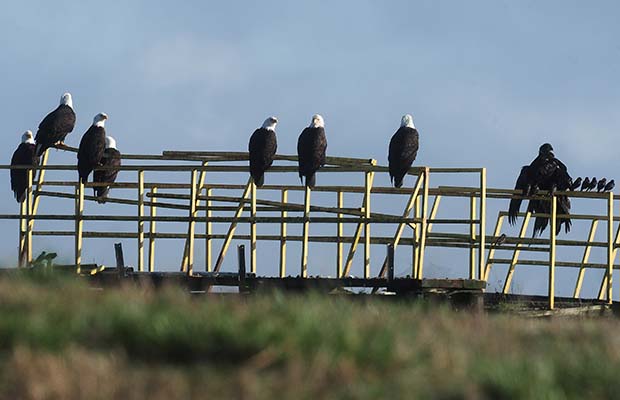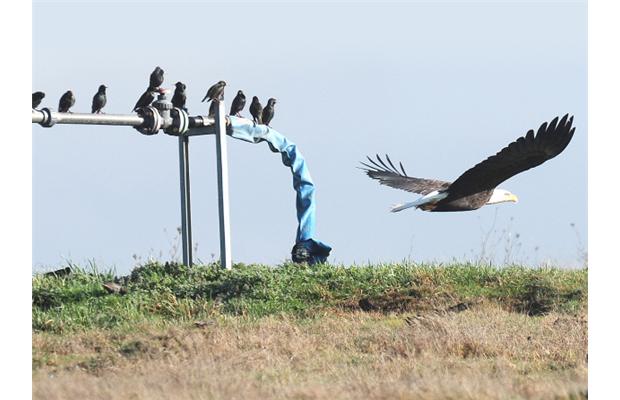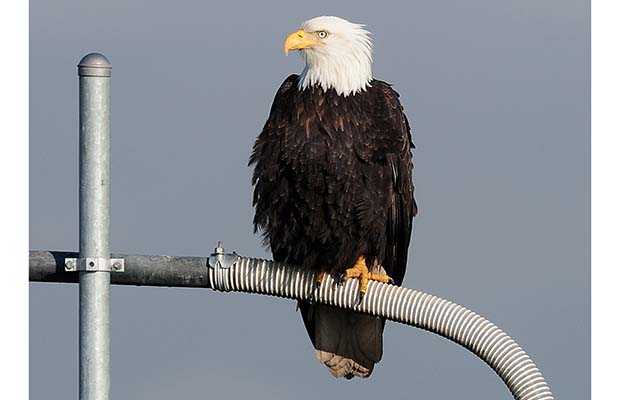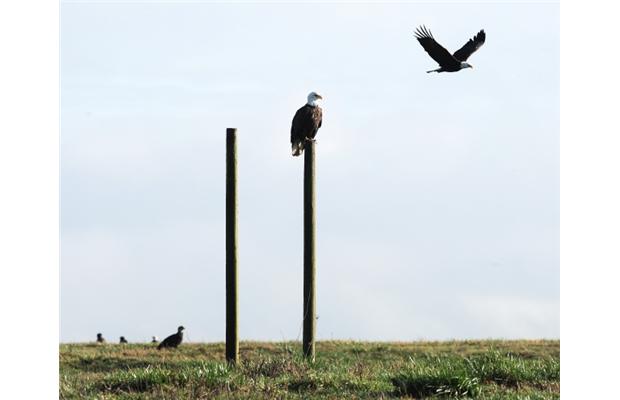Level 2
“They are all over the place. I don’t think you’re going to see any other place with this many,” says Albert Shamess. Shamess is the director of waste management for the City of Vancouver.
“Anything that sticks out of the ground has an eagle on top of it.”
Sometimes a dozen or more sit on top of one tree. They perch there watching the ground below.
March is the busiest month
From December to March over 2000 bald eagles flock to the dump. The dump is also called a landfill. After March the eagles move away to nest and hunt.
Read the story and do the exercise.
Eagles are not interested in eating garbage
Eagles eat mostly ducks and gulls in the area around the dump and Boundary Bay.
Environment Canada studied the eagles at the dump. They think they come to the dump because it’s warm and protected from winter winds.
The landfill is normally very tidy
Eagles like to carry plastic up into the trees. No one knows why. It makes the dump look untidy. The plastic hangs from the trees.
The dump is now a safer and healthier place
Two things have changed. They make the dump a safer place for birds. As a result, the number of eagles living at the dump has grown in recent years
- DDT is a toxic pesticide. DDT used to kill birds living and eating near dumps. It is now banned.
- Eagles’ nesting sites are now protected.
The dump is a great place to hunt
Shamess says the dump is a great place to hunt.
It is close to the Fraser River and the delta. The dump is “a very nice open area with plenty of places to perch.”
The eagles may be in trouble
Things are changing near the Vancouver landfill. The area around the Fraser River is being developed.
- The port and the highway are becoming bigger and busier.
- A new 10-lane bridge is planned.
- A huge new shopping mall is being built.
- Many hectares of farmland are becoming blueberry fields and greenhouses.
All these things together reduce the available habitat.
Did you know….
The Vancouver landfill site is 225-hectares near the Burns Bog in Delta.
It opened in 1966. The landfill is now almost one-third full. It will close in 2037.
The landfill gets about 1500 tonnes of garbage every day.
The methane gas created by the garbage is kept and used to power a local greenhouse.
Story adapted from The Vancouver Sun by Patty Bossort




